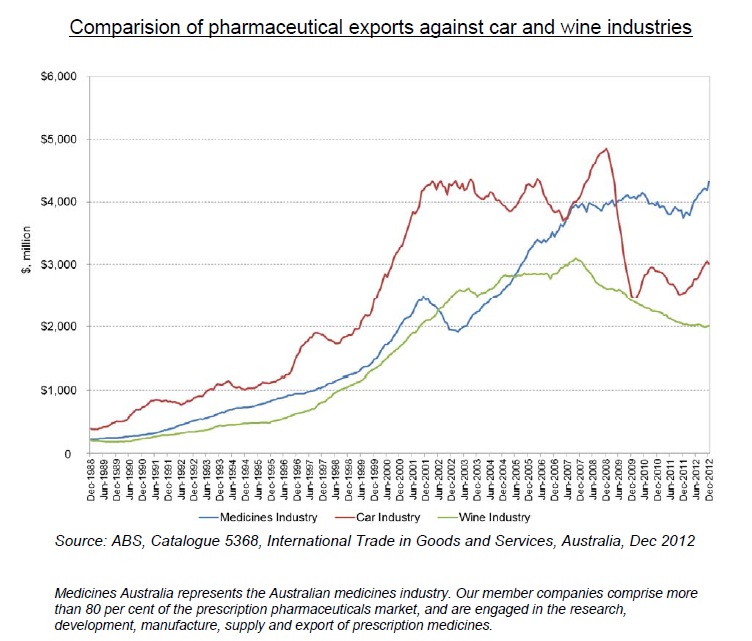Protectionist generic medicines plan flawed
Proposals from a handful of generic medicines companies for the Pharmaceutical Benefits Scheme to preference generic brands of medicines over others are flawed, Medicines Australia chief executive Dr Brendan Shaw said today.
“These proposals argue that substituting originator brands of medicines for generic brands will create savings for the PBS.
“That proposition is flawed on a number of fronts.
“First, it is based on the fallacy that generic medicines are cheaper for the Government than their branded equivalents. The reality is that the Government pays exactly the same price for branded medicines and generic versions. The Government won’t save one cent by protecting one group of manufacturers over another group of manufacturers.
“Second, protectionism is poor policy and a poor way to run the PBS. It is at odds with the market-based mechanism of price disclosure that is delivering taxpayers $1.9 billion in PBS savings.
“Third, giving preference to a generic medicine over an originator brand constrains doctor freedom in prescribing as well as consumer choice.
“Fourth, good policy comes from consultation and dialogue between industry and Government, with a long-term framework in mind. Half-baked ideas that come from left field are not conducive to such an agreed framework and risk not delivering the savings they promise.
“Fifth, it assumes that it is the established generics companies which drive price reductions and that automatically giving these companies market share will provide savings. This may not be the case.
“Sixth, there is already a price signal for consumers to choose a generic medicine over a branded medicine where the branded medicine has a higher patient premium. Where there is no such premium, as far as the consumer is concerned there is no difference in price between an originator brand or a generic brand.
“We have a choice. Either we can manage the PBS through sensible, long-term agreements negotiated with industry to achieve a sustainable PBS in the future that delivers for consumers, government and industry; or we can run the PBS through a procession of ad-hoc, un-costed, ill-thought through policy and administrative thought bubbles.
“History shows that considered, negotiation of a long term policy framework is a far better means of achieving a sustainable PBS for everyone.”
-ENDS-
Contact Person:
Jamie Nicholson
Media Communications Manager
Phone: 0419 220 293
Email: Jamie.Nicholson@medicinesaustralia.com.au

